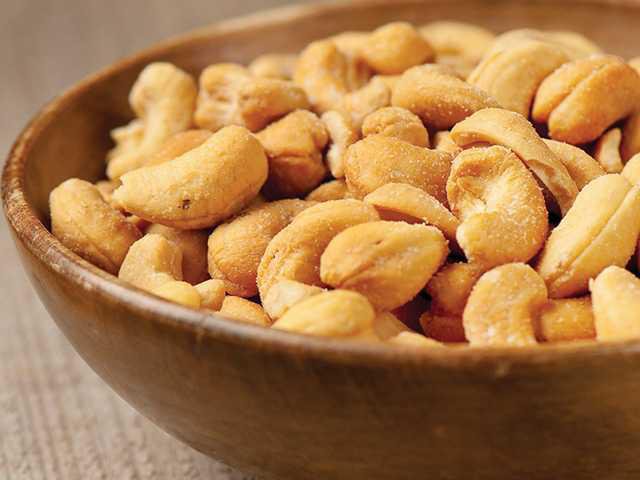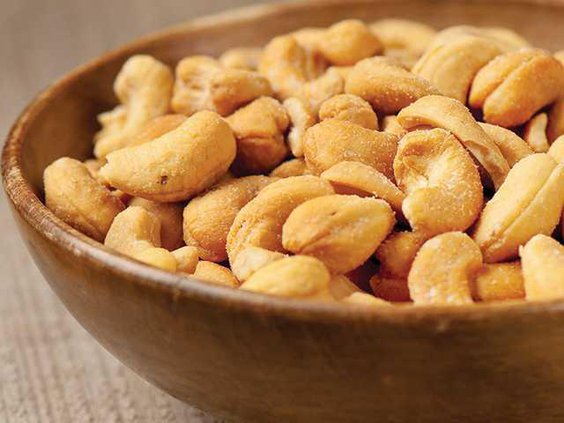Let’s go nuts. Go all out and get crazy nutty.
We all should get a little nutty, as in adding this protein- and fiber-rich food to our diet.
According to the Mayo Clinic, nuts can be good for your heart.
The reason is that nuts are high in unsaturated fats. These good fats, which are monounsaturated and polyunsaturated fats, lower the levels of bad cholesterol, low-density lipoproteins (LDL), in the bloodstream.
Nuts are also rich in omega-3 fatty acids. While these fatty acids are found in other foods such as fish — primarily salmon — nuts are the richest source of omega-3 found in plant-based food.
The fiber and plant sterols found in nuts also help lower LDL levels. And nuts are rich in L-arginine, an amino acid known to improve the health of the walls of arteries.
The study reported by the Mayo Clinic indicates that a variety of nuts are good for a heart-healthy diet, but walnuts led the research group. Topping out the other leaders were almonds, macadamia nuts, hazelnuts and pecans.
These are commonly known as tree nuts.
Did you know a peanut isn’t a nut? Peanuts grow underground and belong to the legume family like beans and peas. But the heart-health benefits remain the same.
The American Heart Association recommends eating four servings of unsalted nuts a week. Select raw or dry-roasted nuts rather than those cooked in oil. A serving is a small handful (1.5 ounces) of whole nuts.
Keeping your ticker in check seems to be one of the many benefits of eating nuts.
Medical Daily reports that studies show nuts are associated with increased cognitive function — providing protection from Alzheimer’s disease — lower mortality risks and the risks of developing chronic diseases, including respiratory and neurodegenerative diseases, diabetes and cancer.
Researchers from Purdue University also found that nuts, while high in calories, are not linked to weight gain.
The same components in the nuts that help lower LDL also help keep your blood sugar stable, and the fiber helps with weight control by helping you feel full.
If you prefer peanut butter rather than the nut, you may still reap some of the health benefits as long as you shop wisely.
Many commercial peanut butter brands add salt, sugar, preservatives and even hydrogenated oils to their final product to enhance shelf life and flavor.
Research done by Purdue University suggests that the addition of these added ingredients may inhibit some of the health benefits.
According to the Peanut Institute, peanut butter — traditional and natural varieties — must contain a minimum of 90 percent peanuts, with no artificial sweeteners, colors or preservatives for the highest health benefit.
You can tell when you have a true natural or organic peanut butter product because the oil tends to separate from the solid butter and requires stirring. Products that use hydrogenated oils stay blended.
If you still desire fried foods or food cooked in a little oil, reach for peanut oil.
According to the Peanut Institute, peanut oil is one of the healthiest oils. It is a vegetable oil that is naturally trans-fat free, cholesterol free, and low in saturated fats. Peanut oil, like olive oil, is high in unsaturated fats, especially monounsaturated fat. It is also a source of the antioxidants vitamin E and phytosterols, which benefit heart-health. Peanut oil is also a perfect choice for healthier frying because it can be heated to a higher temperature than other oils, and this results in lower oil pick up in the food.
Baking cakes and treats can be done using peanut flour.
Peanut flour is a gluten-free and vegan alternative that can add powerful plant-protein and lots of nutrition. Because most of the fat is removed, it is highly concentrated protein and contains about 10-15 grams of protein per ounce. It is also packed with essential nutrients and bioactive molecules. One small scoop (2 tablespoons) is a good source of folate, zinc and potassium and an excellent source of fiber, magnesium, phosphorus and niacin.
Go nuts for good health


Sign up for our e-newsletters